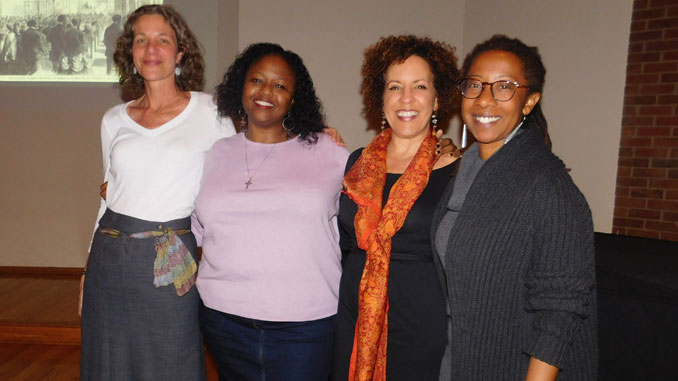
By Jared Braud
Colored Conventions began in 1830 and were held by free, once captive, Black people who came together to organize Civil Rights activities. This is why students and residents came to Tulane University to learn more about this forgotten piece in Black History. The Colored Conventions Project held a public workshop and talks in New Orleans, led by co-founder, Gabrielle Foreman, a Professor of English at the University of Delaware on Feb. 27, 2018.
Louisiana was an obvious stop for The Colored Conventions Project, Foreman said because there were seven Louisiana conventions that are known to have been held here. The project’s staff are hoping to track down surviving records of these organizing efforts for Black Voting Rights and Black Civil Rights in Louisiana. New Orleans is the site of the first Colored Convention before the Civil War ended in 1865.
“Rich men and poor men are sitting together, freed,” Foreman said about how these conventions brought all walks of life together in support of one goal to improve the future of Black people. “The opulent tradesmen and the humble mechanic are sitting as equals in a parliamentary procedure in order to advance Black Rights. It is inspirational and important history covered by the New Orleans Tribune, which is one of the most important African American newspapers in the South,” Foreman said.
Foreman’s workshop and the talks were organized by Kate Adams, an Associate Professor of English and Women’s Literature at Tulane, who wanted to include the City in this national project.
“It’s important for those of our culture and other races as well to understand the long history of Civil Rights organizing and the way in which Black communities in the 19th Century advocated for Civil Rights, voting rights, labor rights, and equal pay for equal work,” Foreman said.
Churches are where Colored Conventions were mostly held, said Denise Burgher, the Committee Chair and Project Leader of the Colored Conventions Project. “Most of the Colored Conventions were held in ‘autonomous Black spaces’ which would be any church, sanctuary, lodge, and independent Black schools because it was the 19th Century,” Burgher said.
The community was not safe, nor was it even socially or legally allowed for African Americans to gather in other areas. Burgher said her whole role is to get in contact with people that are interested in learning about what these Colored Conventions were and to make presentations to start conversations with different community groups who may be interested in collaborating with the Colored Conventions Project.
Since the project’s goal is to recover these historical documents, the team tries to work directly with the community. In the workshop held on Feb. 26, 2018, residents spent time looking at exhibits on the project’s site.
“I invited public school teachers and other visitors to the workshop who are trying to do online public education projects,” Adams said. “Everyone was thinking about Black History and Black recovery as well as digitization. We reviewed the documents from the Colored Convention of 1865 that was held in New Orleans,” she said.
Some attendees said they wanted to know if ordinary citizens could support this type of historical work. Nile Pierre, a freshman at Tulane, said for people who were not accustomed to digital historical projects can join workshops in the African American community to become familiarized with the importance of discovery and preservation.
“I didn’t realize how vital Black women were in the Civil Rights Movement. No one hears about Colored Conventions in school. This was a great opportunity for me as a Black woman to feel empowered by learning about this salvaged history,” Pierre said.
Recommended For You.



Be the first to comment